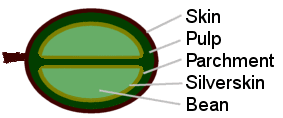I don't think that was rude, it simply makes the point that you're going to have a hard time reducing all risk to zero.
Had a whole thing typed up and hit a wrong key so I'll summarize:
As a 'decent chemist' (environmental, that is - devoted my career to protecting the public from toxins), I think you DO need to take into account various factors:
1) 'The dose makes the poison', to quote the Greek Paracelsus, and it's still true today. Minimizing exposure is good, but it will not be zero, so the question is, what is a safe level, and which areas do I get the best return for the extra effort?
2) Most pesticides ARE required to decompose rapidly, which is why we don't use DDT and other persistent ones anymore. (the term "inactivated" above referred to degradation, either by light exposure, hydrolysis, biodegradation, etc.).
3) I'm not saying there is 'zero' in food or peelings, but in order to use a pesticide (in the US anyway), one has to demonstrate it does not contaminate the food to a level deemed unsafe. Period.
4) I don't blame you for not trusting industry, but if you don't trust the regulators AT ALL, you're really in a fix. The system may not be perfect but it IS set up to protect you and the environment and it's the best we have. If it didn't exist we'd have to invent it pretty quick.
5) Yes there is further breakdown of residues in the compost, it is a VERY biologically active system.
6) There are multiple dilution steps: if you add garden waste, leaves etc. it dilutes the food scraps and any pesticide residues (which I have stipulated are not 'zero'). Then you dilute the compost into your garden soil. Then there would have to be an uptake by plants - the part of the plant you eat. The idea that they could do this in significant amounts is a stretch, in my professional opinion.
6.1) Following up on plant uptake, someone posted that pesticides are water soluble and would penetrate plant tissues, human skin, etc. Both plants and humans are very selective in their uptake so this cannot be assumed. Also, many pesticides are NOT water soluble; they are made soluble in the concoctions you buy, by adding surfactants and solvents.
7) Testing used coffee grounds for pesticides would be a very expensive task. You would first have to research what pesticides are USED, then find a lab able to analyze for each of them. It would costs thousands of $. Just FYI. To me, it is not worth it, based on everything else I am saying here.

"Coffee has 'strong acids' " - Strong acids (in chemistry) are also known as mineral acids such as hydrochloric, nitric, sulfuric etc. Plant matter has organic acids, aka weak acids, such as vinegar, vitamin C, etc. Also, if coffee consumed in reasonable amounts damaged the kidneys, we would probably know that. Coffee has been highly studied.
9) Yes, it is possible to measure parts per million, and parts per billion, and in some cases, parts per trillion, accurately. We chemists have been working on this for a long time. You're welcome!

This is getting long so I'll give it a rest. Even though I am keenly aware of the toxicity of chemicals in the environment, at my house all kitchen waste goes into the compost. The landfill is a sin and I avoid it as much as possible!
Happy composting.

